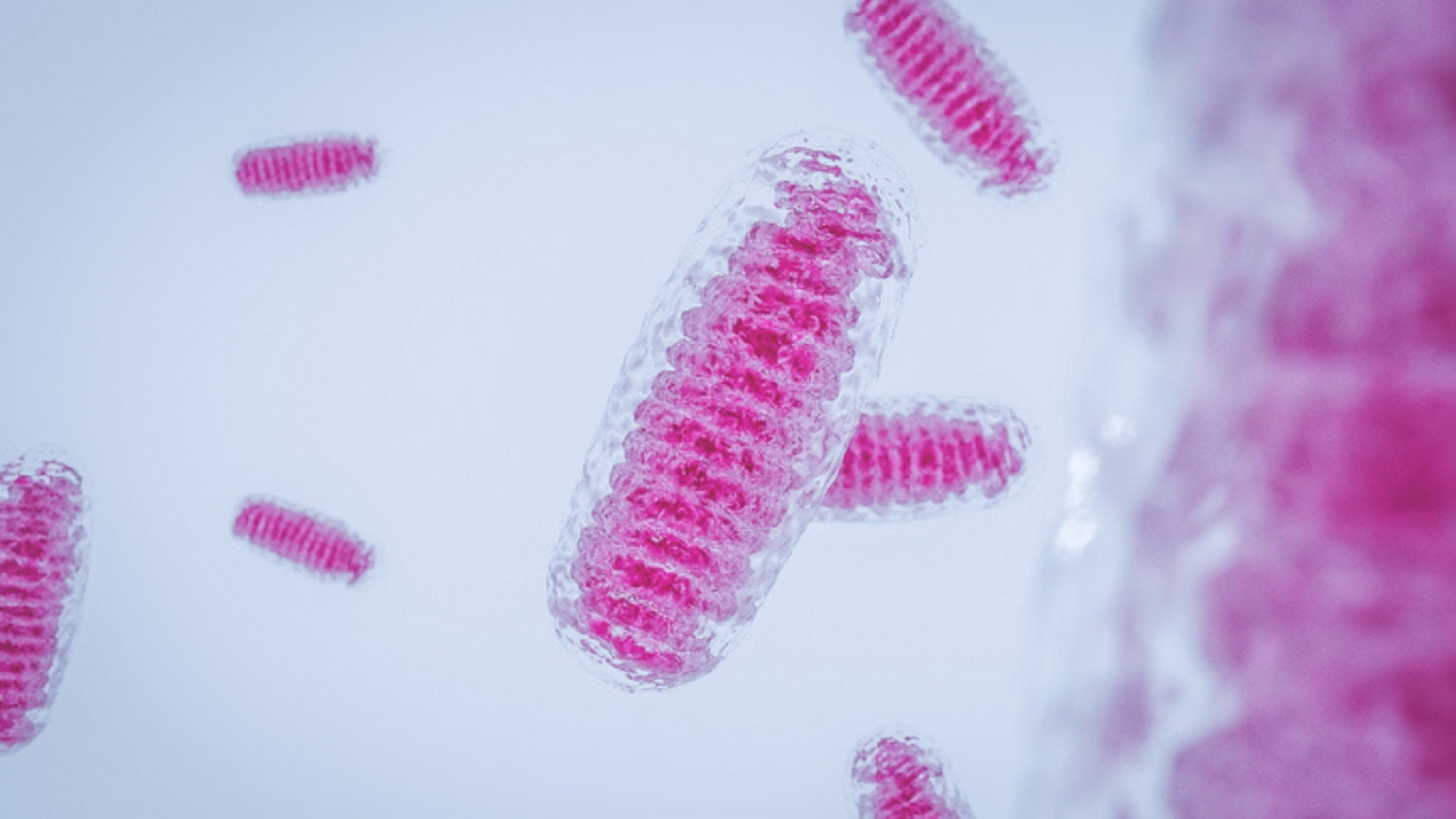Key Takeaways
-
NAD+, ATP, and mitochondria work in unison to fuel every cell in your body and influence ageing.
-
Declining NAD+ levels and mitochondrial dysfunction are strongly linked to fatigue and age-related energy loss.
-
Supporting mitochondrial health and cellular energy systems is crucial for longevity and healthy ageing.
Your body produces roughly your bodyweight in ATP every single day. That’s trillions of tiny energy molecules created and spent, all in the background, just so you can think, breathe, and move. Without this constant stream of energy, life as you know it would stop in seconds.
Energy isn’t just about how awake you feel in the morning. It’s the essence of every biological process, from repairing DNA to maintaining your heartbeat. Yet as you age, the systems that generate this energy begin to falter. To truly understand why NAD+, ATP, and mitochondria are so vital, you first need to grasp the science of how energy is created at the cellular level.
The Science of Energy: Turning Food into Fuel
Behind every heartbeat and every thought lies an intricate biochemical dance that transforms nutrients into energy. This process begins the moment you eat. Carbohydrates, fats, and proteins are broken down into smaller molecules like glucose, fatty acids, and amino acids. These feed into metabolic pathways that ultimately generate ATP, the universal energy carrier of life.
The first step is glycolysis, where glucose is split into pyruvate, producing a small amount of ATP and NADH. Next, pyruvate enters the Krebs cycle (citric acid cycle) in the mitochondria, where more NADH and FADH₂ are created. These molecules are electron carriers, and they deliver their cargo to the electron transport chain (ETC), a series of protein complexes embedded in the mitochondrial membrane.
Here, oxygen becomes the final electron acceptor, allowing the ETC to pump protons across the mitochondrial membrane and create a proton gradient. This gradient powers ATP synthase, a molecular machine that churns out ATP in a process called oxidative phosphorylation (R).
This multi-step process is what keeps you alive — but it also depends on the availability of NAD+, the efficiency of mitochondria, and the body’s ability to recycle and manage ATP. As we’ll see, these four pillars form the foundation of your vitality and longevity.
1. NAD+
NAD+ (nicotinamide adenine dinucleotide) is a coenzyme found in every cell, acting as a critical electron carrier in energy metabolism. Without NAD+, the electron transport chain would grind to a halt, and ATP production would collapse. Beyond energy, NAD+ also fuels DNA repair, sirtuin activity (linked to longevity), and cellular stress resistance. Unfortunately, NAD+ levels decline with age, stress, and illness, making replenishment and preservation vital for sustained energy and healthy ageing (R).

2. ATP
ATP molecules store and transfer chemical energy within cells, making them indispensable for everything from flexing a muscle to synthesising proteins.
The process of ATP generation is a finely tuned cycle. Nutrients are broken down into smaller molecules, electrons are transferred by NAD+, and ultimately mitochondria use these electrons to power the production of ATP through oxidative phosphorylation (R).
However, ATP doesn’t last long—it’s used almost as soon as it’s created. This means your mitochondria are constantly working overtime to replenish the supply. Without efficient ATP production, cells experience energy crises that can contribute to fatigue, impaired immunity, and in the long run, chronic age-related decline.
3. Mitochondria
Mitochondria are often described as the “powerhouses” of the cell, and for good reason. They are the sites where oxygen and nutrients meet to create ATP. Each mitochondrion contains its own DNA and operates almost like a tiny, independent factory within your cells.
Healthy mitochondria are highly efficient. However, as they become damaged by oxidative stress, environmental toxins, and the natural process of ageing, their ability to produce ATP diminishes (R). This mitochondrial dysfunction is one of the hallmarks of ageing, strongly linked to fatigue, muscle weakness, and neurodegenerative conditions.
Interestingly, mitochondrial health also influences how quickly or slowly you age. Research has shown that interventions that improve mitochondrial biogenesis (the creation of new mitochondria) are associated with extended lifespan in animal models (R). This suggests that protecting your mitochondria may be one of the most powerful longevity strategies available.

4. The Trio: How NAD+, ATP, and Mitochondria Interconnect
The truth is the most important energy pillar is the combination of these three pillars. NAD+, ATP, and mitochondria work hand in hand to maintain your energy balance. NAD+ drives the electron transport chain inside mitochondria, which then uses oxygen to create ATP. Without NAD+, mitochondria cannot produce ATP efficiently, and without healthy mitochondria, NAD+ cannot fulfil its role.
As you age, NAD+ levels start to decline, mitochondrial damage accumulates, and ATP production slows. This results in decreased energy availability, making you feel more fatigued and less resilient. The science suggests that slowing or even reversing this cycle by supporting NAD+ and mitochondrial health may help sustain energy and contribute to healthier ageing (R).
Energy and Ageing: The Longevity Connection
One of the most compelling aspects of this science is its relationship with ageing. Energy decline is not just about feeling tired, it’s a hallmark of cellular ageing. Studies have shown that low NAD+ and mitochondrial dysfunction are involved in age-related diseases such as diabetes, cardiovascular disease, and neurodegeneration (R).
Sirtuins, which rely on NAD+, play a major role in promoting genomic stability and extending cellular lifespan. Meanwhile, mitochondrial biogenesis and function are directly tied to exercise, caloric restriction, and other lifestyle factors that are well known to extend lifespan in animal models (R).
In other words, supporting these systems is not just about boosting your daily energy levels, it’s about influencing the rate at which you age. This is why longevity researchers are so focused on NAD+, ATP, and mitochondria.

Practical Ways to Support Your Energy Pillars
While ageing is inevitable, supporting your NAD+ levels and mitochondrial health is within your control. Evidence-based strategies include:
Exercise: Physical activity stimulates mitochondrial biogenesis and improves ATP production efficiency (R).
Sleep: Rest is essential for mitochondrial repair and maintaining NAD+ balance (R).
Dietary choices: Nutrients such as B vitamins, polyphenols, and omega-3 fatty acids are crucial for mitochondrial function (R).
Sunlight and circadian rhythm alignment: Exposure to natural light helps regulate energy metabolism and mitochondrial health (R).
Stress management: Chronic stress accelerates NAD+ depletion and increases mitochondrial damage (R).
These approaches don’t just make you feel more energised in the short term. They support the deeper cellular mechanisms that affect how you age.
Conclusion: Building Energy for Longevity
Energy is more than just a feeling, it’s the biological foundation of your life. NAD+, ATP, and mitochondria are the cornerstones that keep you moving, thinking, and thriving. As you age, their decline can affect everything from vitality to long-term health. But with the right lifestyle choices, you can support these pillars and help your body sustain energy well into later years.
If you’re ready to explore more strategies for supporting energy and longevity, check out our next blog: Eating For Energy Over 40.





